- Home
- Russell Blake
Jet 04: Reckoning Page 4
Jet 04: Reckoning Read online
Page 4
But there was another way, he realized, and he hastily pulled off the vest and removed his jacket. He slid his arms through the straps and then donned his jacket again before zipping it over the vest; now he blended with the surrounding water, the red completely concealed. It would take a while for the boat to alter its course and make its way back, by which time he could be a quarter mile away. As long as he didn’t splash around and increase his profile in the water, the deception might work.
The ferry was beginning its turn when its sides exploded outwards, the metal distending and then blowing open with a massive fireball that hurled debris and black smoke into the sky. Alan watched in horror as the ship seemed to break in half even as the blast continued rippling through the hull as if in slow motion. The stern pointed straight into the air as the hull cracked at the midpoint, and then pieces of debris came sailing through the air, splashing into the sea between him and the sinking vessel. He was shocked at the speed with which the two sections disappeared into the depths, and in less than a minute there was nothing left but pieces of floating wreckage.
The mainland was just visible in the far distance of the horizon, but even so he knew that the smoke would be caught by the Montevideo authorities and a host of boats dispatched to hunt for survivors. There were actually a few pleasure craft in the distance, maybe five miles away, and he was confident they would soon be near enough for him to flag one down.
Fifteen minutes later the first made it to the vicinity – a ninety-foot commercial trawler with a bright orange hull, rusting through in patches. The captain saw him waving from the relatively calm seas, and in a few more minutes the crew dragged him onboard, the life vest already jettisoned once he was sure they’d spotted him.
The captain spent a half hour searching in the water, but didn’t find anybody else, and seemed genuinely concerned when Alan described an explosion that had capsized his small boat and how he’d struck his head somewhere in the process. One of the crew inspected the bloody bump and the captain made a course for the mainland, anxious to get Alan medical attention. He radioed the Uruguayan authorities to let them know he was coming in, and they agreed to meet him at the dock to rush Alan to the hospital and take his statement.
The boat lumbered towards land at eleven knots, and soon the crew was stowing the lines and preparing to dock for the evening before heading back out the following day for another try at the ocean’s bounty. Alan sat near the pilothouse watching their progress, and when they were a mile from port amidst the container cargo vessels, awaiting clearance to enter the harbor, he slipped to the stern, unseen by the captain and crew, who were focused on their nearing destination. He took three deep breaths and dived into the water, figuring that now he could easily swim the distance to land and disappear, an unidentified survivor who would forever remain a mystery.
He treaded water until the boat was a couple hundred yards away and then struck out for the shore on the western side of the port. An hour later Alan dragged himself onto a small beach as the sun set over the city. He was dripping, cold, and had little more than the clothes on his back – the sole witness to the worst disaster in the port’s history.
Chapter 4
Jet waited in line at customs in Buenos Aires, the long flight from Europe finally over. The queue inched forward as the tired travelers shuffled like chain gang prisoners toward the bank of immigration officials working at a snail’s pace. Even with the excruciating delays, she was happy to be on the ground, and once her passport had been stamped and she was allowed to use her cell, she powered it on and waited for service.
The little phone beeped at her, indicating she had a text. She pressed a series of buttons and studied the screen intently. Thank God. Alan was okay, and hadn’t answered before because of a flight delay. But he’d decided to skip Buenos Aires and proceed to Montevideo, which changed her plans, too. There was no point in staying overnight if he’d already left, so she proceeded to the taxis and took the first car, instructing the driver to head to the ferry building near downtown.
She checked the time and saw that it would be dark fairly soon – customs had taken almost an hour, which might mean that the last ferry of the afternoon had already left. But she seemed to recall from her perusal of the schedule on her last boat ride from Uruguay that there was a late one that departed after dinner. If so, then she would catch it. If not, she was only a few blocks from some of Buenos Aires’ best hotels, and would spend the night and take the first ferry in the morning.
Jet tried Magdalena’s phone again, but there was no answer. Her agitation level increased, but nothing like before – just as there had been a perfectly good explanation for Alan not answering, there was doubtless one for Magdalena not picking up. Unlike at the airport, she didn’t feel the same sense of dread she’d had when boarding her flight – Alan’s message had calmed her nerves.
All of the rush hour traffic was headed out of the city, but even so, once they approached downtown things slowed to a crawl, and the final three miles took as long as the first fifteen from the airport. When they finally arrived at the terminal, Jet couldn’t wait to get out of the cab. She handed the driver a fistful of pesos and hauled her bag out of the back seat.
Soldiers toting machine guns ringed the ferry building – odd, as they hadn’t been in evidence when she’d been there less than two weeks ago. Perhaps some sort of civil disobedience or protest had occurred since then – a perennial problem as the Argentine economy continued its slow-motion train wreck since the financial crisis. The stone-faced soldiers barely glanced at her as she moved through the oversized doors and approached the ticket booth, where a noisy throng milled. An old woman sobbed as her family stood around, trying to comfort her. Jet pushed her way through the agitated crowd until she reached an open window and greeted the young woman behind the bullet-proof glass.
“Buenastardes. Is there another ferry going to Montevideo tonight?” Jet asked.
“No, and because of the incident, probably not tomorrow, either,” the woman curtly informed her.
Jet did a double take.
“Incident?”
“Ah, you haven’t heard. It’s the ferry. There’s been an explosion.”
“What?” Jet’s blood froze. “Which ferry?”
“The one to Montevideo. It exploded an hour ago near Uruguay. They’re saying it was a terrorist attack, but nobody really knows. It just happened, so it’s all speculation.”
Jet’s heart rate increased to trip hammer speed, and her pulse pounded in her ears. She choked back bile, the wave of nausea coming over her as the woman finished pronouncing the last syllable.
She cleared her throat. “What time did that ferry leave?”
“It was the one that took off four hours ago. The afternoon boat.”
“Good Lord. That’s terrible. What about survivors?” Jet asked woodenly.
“I don’t have any official information on that, but you can listen to the news for updates.” The woman pointed to a flat-panel television suspended above the nearby bar that a large group was standing near. A sincere anchorman was talking to a reporter in Uruguay, whose face was somber. Jet edged closer to hear the broadcast.
“…explosion was heard all the way in Montevideo, and the smoke from the blast could be seen with the naked eye. The Uruguayan navy is in the area, as are a host of other boats, but so far it doesn’t look good. There’s no trace of the ferry, and no known survivors,” the reporter intoned.
The scene flipped to an aerial view of floating wreckage in the dark water, barely visible as the sun set, spotlights from the nearby ships and helicopters playing across the surface.
Five more minutes of coverage yielded no new information. The ship had exploded, the authorities had nothing definitive but were treating it as a terrorist attack, and the experts had ruled out an engine or fuel explosion due to the speed at which the vessel sank – if it had been a naturally occurring calamity, at least some passengers would have had time to move to th
e relative safety of the water and the lifeboats, so there would have been survivors.
Nine hundred and forty-seven people were believed dead – the number double what it would have been if the smaller catamaran that usually did the trek had been operating. The TV switched to interviews with gasping family members of passengers. Jet had seen enough. She pulled up Alan’s text message again and looked at the time stamp – he’d sent it about the time the ferry would have been pulling away from the dock.
Her senses overloaded from the news of the explosion and the realization that Alan was dead. She shuffled to the exit doors like an automaton, hardly registering her surroundings. Alan had survived Yemen, countless hazardous missions, the Los Angeles bio-attack…only to die on a supposedly safe ferry ride across the bay?
It seemed surreal.
And yet the news was reporting real-time about the disaster, so it wasn’t a mistake. He’d been in the wrong place at the wrong time. Sometimes life was like that – brutal, sudden, disastrous for apparently no reason. But why now? Why Alan?
Outside on the sidewalk she dialed Magdalena’s phone again, automatically, only to have it ring before disconnecting. Jet swung around, looking at the boulevard that ran in front of the terminal, and forced herself to think. Now what?
Hannah. She needed to get to Hannah. That was the overriding priority.
But how could she get across the bay with no ferry service?
She knew there was a road that ran across the Rio de Plata and then across Uruguay to the coast, but that was an eight or more hour drive – she’d looked into it before, and while it was possible to do, it was unwieldy and time-consuming. It would mean renting a car and driving all night to get to Maldonado, a daunting proposition after having spent a dozen hours in the air and being disoriented from time changes.
Jet flagged down a taxi and asked to be taken to the nearby domestic airport – her best shot at chartering a plane. They arrived in eight minutes, and once she found herself standing outside the departure terminal, it struck her how chaotic and inefficiently she was behaving. She moved inside and asked the information kiosk for information on air charter companies, but was greeted with a blank stare. Not surprising – she’d realized the error of her assumption that the charter companies would be at the airport as the cab had pulled away.
An internet café sat at the side of the departure hall, and she strode to it and took the nearest open computer to do a hasty web search. There were three companies she could quickly find. She dialed each on her cell, but only got recordings. Given that it was after business hours, that made sense. She was screwed until the following morning, unless she wanted to drive.
Jet paid the attendant and approached a car rental booth on the arrivals side of the airport, and was informed that vehicles were available, and that, yes, she could take the car to Uruguay, but that it would require a significantly higher rental rate as well as additional insurance.
Now she had to choose – drive until dawn, or spend the night and try to get a plane the following day. She thought about it, then decided to drive. She could always find a motel en route if she became too tired, but at least she was guaranteed to see her daughter tomorrow; whereas if she had to arrange for a plane, it could realistically take most of the day, especially since any others with pressing business in Montevideo would be competing for the few available airplanes. Neither prospect was appealing, but she was too filled with nervous energy from the news of the explosion to just sit in a hotel all night hoping she could get some rest. Doing something, even if it was only driving, would keep her occupied.
Alan’s face came unbidden to mind, and her eyes welled as she signed the requisite forms. She turned from the agent and blotted them with a tissue, then got ahold of herself. There would be plenty of time to mourn Alan’s passing on the road; no need to put on a display for the passers-by.
The car was a red four-door Ford Mondeo, almost new, and the helpful lot attendant did his best to explain how to get out of Buenos Aires, using the complimentary map the agency provided. It took her an hour to negotiate her way to the city limits, but once she was clear the area became verdant and rural, mostly dark, the only illumination that from the highway lamps and the occasional other vehicle.
She stopped in the small town of Zarate and grabbed dinner at a local parilla;, a small outdoor restaurant with a wood-fired grill that specialized in every imaginable cut of meat, forcing herself to eat in spite of her lack of appetite. One thing she had learned in the field was to grab sustenance when you could – you never knew when you might be required to go days without a meal.
Once fed, she pointed the car north and pulled onto the two-lane highway that led to the border, resolved to keep going until she couldn’t keep her eyes open. When she got to the frontier, the Argentines were courteous and efficient, but after crossing the river bridge that defined the natural border between the two countries she wasn’t so lucky, and had to endure a seemingly endless search of her car. The Uruguayan officers apologized, but warned that since the ferry explosion she could expect periodic checkpoints and random searches – the entire country was on alert.
In the early hours of the morning she was nodding off, the incessant coverage on the radio failing to hold her interest as the same information was repeated over and over, and when she arrived at San José de Mayo, a few hours west of Montevideo, she found a simple hotel staffed by a cranky night clerk and rented a room.
As she drifted off to sleep, tossing and turning on the hard mattress, her final thoughts were of Alan and her daughter, Hannah. Now that Alan was dead, she and her daughter were truly alone in the world again, their brief connection to another human being severed by a random and chaotic universe’s fickle nature.
Chapter 5
A raven peered down from its leafy perch at the large southern-styled home in Wolf Trap, Virginia, before the sound of a leaf blower startled it into flight. The tops of the trees rustled in the stiff breeze, the first signs of approaching autumn only just beginning to show in their color.
A quiet enclave of moneyed power, the area was among the most desirable real estate in the United States, a community of discretion and subdued wealth, where bankers rubbed shoulders with the power elite of the nation’s capital over lattés, amid talk of polo and votes.
The nearest neighbor was an eighth of a mile away, and from behind the shoulder-high black-lacquered wrought-iron and stone perimeter wall, the immaculately manicured grounds spoke of precise attention and subtle good taste.
An unobtrusive gatehouse stood just inside the grounds, two men on twenty-four hour duty inside and another ten patrolling the property on round-the-clock shifts. No expense had been spared on the highest technology security measures, and the palatial plot was bristling with motion detectors, infra-red, and counter-surveillance jamming equipment. None of this raised any eyebrows in the low-key community, where dignitaries and high-powered movers and shakers routinely employed bodyguards and private security forces.
A landscaping crew was working on the hedges that lined the long drive as the electric double gates opened and a black American sedan pulled onto the cobblestones and rolled around the small bend before coasting to a stop near the front entrance. The driver leapt from behind the wheel and hurried around to get the rear passenger door. A heavy-set man in his forties got out, his gray suit slightly rumpled, and ascended the three steps to the colonial portico, eyeing the security cameras discreetly mounted under the porch eaves as he pressed the black doorbell. As he waited, he turned and surveyed the compound – it was park-like, completely private, and he wondered for the twentieth time what it was worth.
The door opened with a squeak, and a short, slight man in his fifties regarded him, his face flushed, his closely cropped salt-and-pepper hair slightly mussed – at odds with his impeccably tailored black suit, white shirt, and black tie.
“Sloan. Thanks for coming,” the smaller man said.
“Standish. My pleasure, as
always. I have nothing better to do than drop everything when he calls,” Sloan said, his tone friendly, but his humorless blue eyes cold as glaciers.
“Ah. Just so,” Standish murmured noncommittally.
“How’s he doing?”
“He’s not having a good day.”
“Does he ever?”
“No.”
Sloan entered the foyer with its gleaming hardwood floor and noted the incredible collection of antiques that adorned the living room off to the right. It was like an early American museum, some of the pieces worth multiples of the price of a luxury automobile. Standish motioned to Sloan to follow and led the familiar way to the elaborate stairway. The wheelchair lift was still at the top, and they stepped around it as they arrived at the landing.
“Is he now wheelchair bound?” Sloan asked.
“It’s more comfortable for him. He can walk, but prefers not to.”
Sloan took in that piece of information without comment.
“We leave the lights low all the time in his room. Your eyes will adjust,” Standish warned.
“They were low last time I was here.”
“They’re lower now.”
“How is he? He’s added to the security detail,” Sloan commented.
“About as well as can be expected, under the circumstances. And yes, he’s got a small army around here. It makes him feel better. I think he feels exposed…”
“Paranoia?” Sloan asked.
“Hard to say, isn’t it? Given what he’s been through, do you blame him? The way I see it, it’s always paranoia until something bad happens – then it’s prudent planning.”
“Fair point.”

 Night of the Assassin
Night of the Assassin Jet
Jet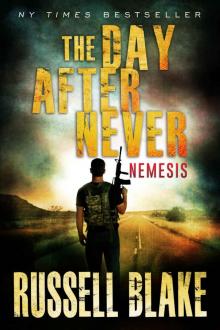 The Day After Never - Nemesis (Post-Apocalyptic Dystopian Thriller - Book 9)
The Day After Never - Nemesis (Post-Apocalyptic Dystopian Thriller - Book 9)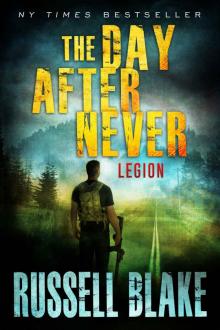 The Day After Never - Legion (Post-Apocalyptic Dystopian Thriller - Book 8)
The Day After Never - Legion (Post-Apocalyptic Dystopian Thriller - Book 8)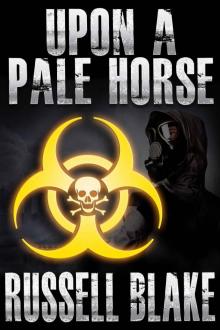 Upon A Pale Horse (Bio-Thriller)
Upon A Pale Horse (Bio-Thriller)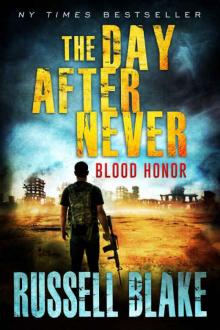 The Day After Never (Book 1): Blood Honor
The Day After Never (Book 1): Blood Honor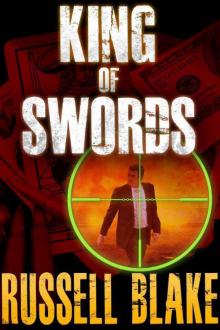 King of Swords a-1
King of Swords a-1 The Day After Never Bundle (First 4 novels)
The Day After Never Bundle (First 4 novels) Emerald Buddha (Drake Ramsey Book 2)
Emerald Buddha (Drake Ramsey Book 2) BLACK to Reality
BLACK to Reality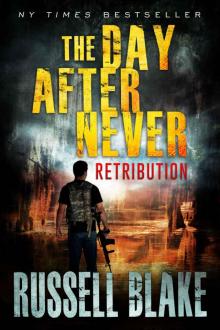 The Day After Never - Retribution (Post-Apocalyptic Dystopian Thriller - Book 4)
The Day After Never - Retribution (Post-Apocalyptic Dystopian Thriller - Book 4) Ramsey's Gold (Drake Ramsey Book 1)
Ramsey's Gold (Drake Ramsey Book 1)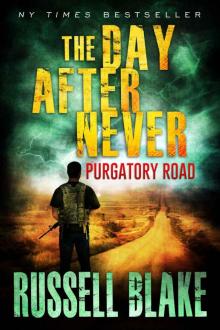 The Day After Never (Book 2): Purgatory Road
The Day After Never (Book 2): Purgatory Road JET - Ops Files
JET - Ops Files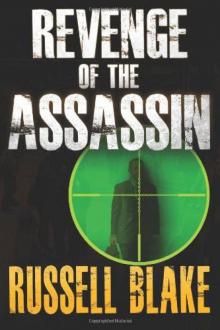 Revenge of the Assassin a-2
Revenge of the Assassin a-2 Requiem for the Assassin - 06
Requiem for the Assassin - 06 The Geronimo Breach
The Geronimo Breach Sahara
Sahara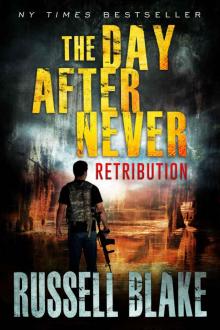 The Day After Never (Book 4): Retribution
The Day After Never (Book 4): Retribution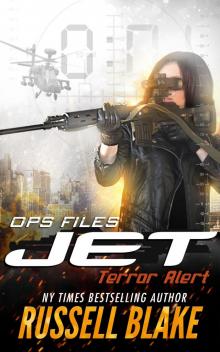 Ops Files II--Terror Alert
Ops Files II--Terror Alert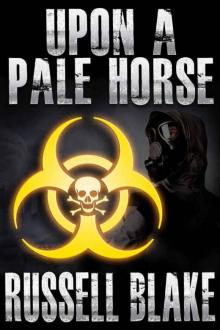 Upon A Pale Horse
Upon A Pale Horse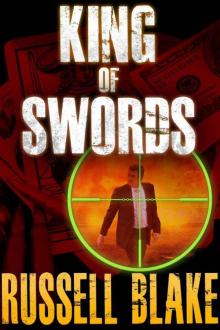 King of Swords (Assassin series #1)
King of Swords (Assassin series #1) A Girl Apart
A Girl Apart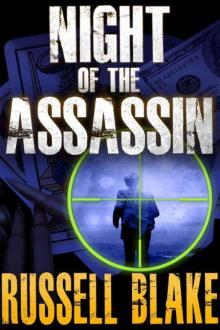 Night of the Assassin: Assassin Series Prequel
Night of the Assassin: Assassin Series Prequel Rage Of The Assassin
Rage Of The Assassin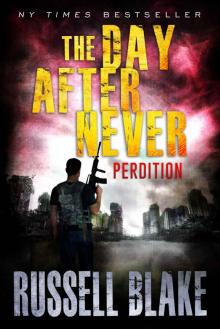 The Day After Never - Perdition (Book 6)
The Day After Never - Perdition (Book 6) The Voynich Cypher
The Voynich Cypher JET, no. 3
JET, no. 3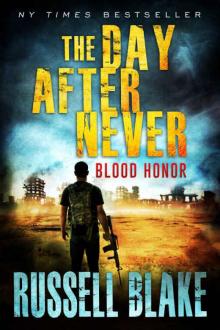 The Day After Never - Blood Honor (Post-Apocalyptic Dystopian Thriller)
The Day After Never - Blood Honor (Post-Apocalyptic Dystopian Thriller) 9 More Killer Thrillers
9 More Killer Thrillers The Goddess Legacy
The Goddess Legacy Fatal Exchange
Fatal Exchange Fatal Exchange (Fatal Series Book 1)
Fatal Exchange (Fatal Series Book 1) JET - Forsaken
JET - Forsaken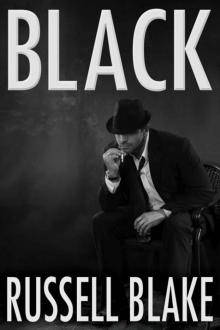 Black
Black Jet j-1
Jet j-1 Betrayal j-2
Betrayal j-2 Jet 04: Reckoning
Jet 04: Reckoning Jet 03: Vengeance
Jet 03: Vengeance Fatal Deception
Fatal Deception A Girl Betrayed (A Leah Mason suspense thriller Book 2)
A Girl Betrayed (A Leah Mason suspense thriller Book 2)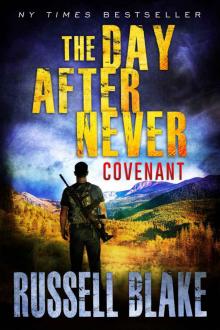 The Day After Never - Covenant (Post-Apocalyptic Dystopian Thriller - Book 3)
The Day After Never - Covenant (Post-Apocalyptic Dystopian Thriller - Book 3) JET II - Betrayal (JET #2)
JET II - Betrayal (JET #2)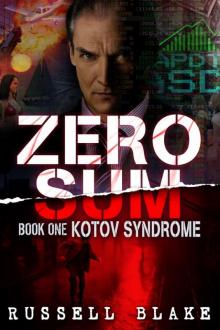 Zero Sum, Book One, Kotov Syndrome
Zero Sum, Book One, Kotov Syndrome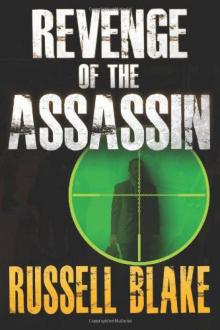 Revenge of the Assassin
Revenge of the Assassin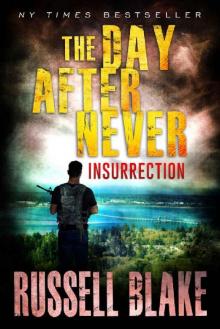 The Day After Never - Insurrection (Book 5)
The Day After Never - Insurrection (Book 5) BLACK in the Box
BLACK in the Box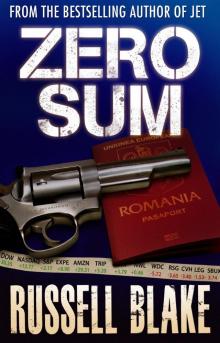 Zero Sum
Zero Sum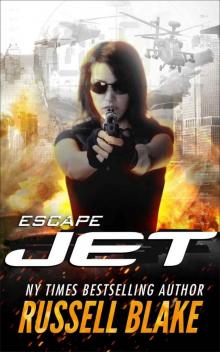 JET - Escape: (Volume 9)
JET - Escape: (Volume 9) The Manuscript
The Manuscript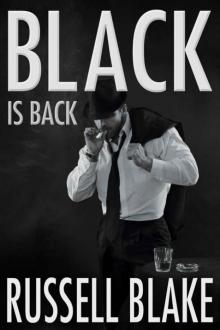 BLACK Is Back
BLACK Is Back Silver Justice
Silver Justice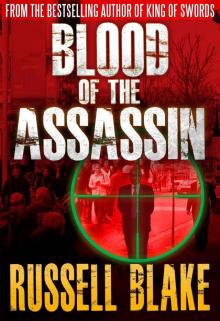 Blood of the Assassin
Blood of the Assassin Rage of the Assassin: (Assassin Series #6)
Rage of the Assassin: (Assassin Series #6) BLACK Is the New Black
BLACK Is the New Black